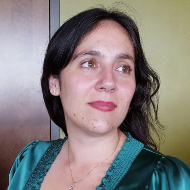
The other week I got to see something really amazing: a community where teachers have all the support they need to teach climate change and evolution.
The 400+ attendees at the 2017 Northern Illinois Science Educators (NISE) conference were, for the most part, there to receive fully paid, district-supported professional development. Presenters like the University of Washington’s Deb Morrison gave excellent, interactive, hands-on workshops on topics such as equity in assessment, multidisciplinary integration, and educational neuroscience. The teachers I talked with, on average, worked with about 80 students a year. They were not pressured to put in a lot of work outside of school hours, and that they were given adequate paid time and support to accomplish the shift to NGSS. Good local union. They had adequate classrooms supplies; no complaints. One teacher told me how an administrator at a participating low-income school regularly ran out to the neighborhood hardware store to stock up, at the demand of his raucous students. The kids needed their supply lists filled. They needed stuff to test their own ideas and answer their own questions.
When I gave my presentation, I asked the teachers how many of them had faced challenges around the teaching of climate change or evolution. A few of them put their hands up: far fewer than we are used to seeing when we ask groups of teachers this question. When I told them about the challenges facing teachers in other parts of the country, they were surprised.
Things got really interesting when we got started on group work. When I spoke with them in small groups, the number of teachers who had faced challenges around climate change or evolution was actually really high. We weren’t talking about the 5% or so that had raised their hands before; we were talking about an almost universal experience.
Almost every teacher had faced at least one direct complaint in the last two years. I asked these teachers why they hadn’t raised their hands when I asked if they’d had these problems. They shrugged. The complaints hadn’t bothered them. They knew they weren’t going to lose their jobs over them. They could throw problems up the administrative chain and know they would be handled appropriately. Complaints didn’t scare them, and complaints didn’t change their teaching. The social pressure that can silence teachers in other communities wasn’t present here. One teacher told me that, for every complaint she got, she had four or five parents thank her for teaching their kids about climate change, and asking her to teach them more. Teachers from various Catholic schools bonded over stories of “goofball” parents who objected to evolution in classroom. The teachers cited the protection of not only their fellow teachers and the administration against these complaints, but of the Church.
How awesome was this? Really awesome. What a place to be! What a community to see!
When I left the auditorium, I had the opportunity to speak with a number of state-level administrators: the people who had helped shape the way Illinois would implement the Next Generation Science Standards. These men and women were proud of how well things had come out. They had empowered this wonderful, supported, highly skilled and highly educated community of teachers to meet the NGSS, and to keep developing their professional skills. What did they cite as a major contributor to their success? Preparation to face controversy. Implementation of NGSS requires tremendous resources in terms of both money and time, for both professional development and classroom equipment. Although addressing these needs of course required serious planning, the administrators and consultants reported spending a significant portion of their time and concern considering how to respond to potential legal challenges to the NGSS, which could derail all their other work.
How did they do it? Deliberate front-ending of defensive measures, in the classic Chicago style. They wanted to be fully prepared for legal challenges–to have a system in place to respond to every kind of threat. They were ready for challenges at the state as well as the district level, but because they empowered their districts, the state-level threat never came.
This encounter has made me so hopeful for the future. When NISE invited me, I was so happy to go and talk with them, because I was happy to go home. I grew up in Chicagoland; spent my education through my bachelor’s in Illinois. I went on this trip with the intention of thanking this teaching community for what they had done for me. Instead, what happens? They do another thing for me! They help me more!
What gratitude I feel, knowing the pieces can come together. The type of working conditions we want for teachers aren’t just a pipe dream. The quality of education we want for our students is possible. But communities where these things happen aren’t built overnight. They take hard work and deliberate planning. They don’t have to be rich. They don’t have to be liberal. They don’t have to be perfect. The teachers I met live and work in communities that struggle, that face funding challenges, and that regularly supply them with parental complaints. But these teachers don’t need to let that get them down. They have the support they need.
Thanks, NISE, for another lesson.

